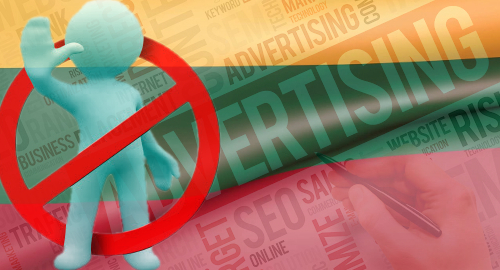 Lithuania’s online gambling operators have agreed to curtail their marketing efforts during the COVID-19 lockdown after ignoring earlier requests from the country’s gambling regulator.
Lithuania’s online gambling operators have agreed to curtail their marketing efforts during the COVID-19 lockdown after ignoring earlier requests from the country’s gambling regulator.
In mid-March, Lithuania’s government declared a country-wide quarantine to reduce further spread of the COVID-19 coronavirus. The quarantine was scheduled to last through April 27 and the country’s Gaming Control Authority (GCA) ordered all land-based gambling venues to observe the closure order.
The country’s seven licensed online gambling operators – including Olympic Entertainment Group, Optibet and Betsson’s Betsafe brand – found themselves holding a temporary oligopoly, a privilege the GCA warned them not to abuse. The GCA urged its licensees to observe the guidance jointly issued by multiple European regulatory bodies for responsible advertising during the pandemic.
The GCA claimed to have got no response from its licensees regarding these recommendations, and further claimed to have notice an uptick in online gambling advertising on sports news sites. On April 6, the GCA again contacted its licensees, demanding confirmation that they would abide by the socially responsible recommendations.
Apparently this last message got through, as the Lithuanian Gambling Business Association and the National Gambling and Gaming Business Association responded with a pledge to voluntarily halt all online gambling marketing on television, online and other mass media channels, starting April 15 and lasting through the end of the quarantine period.
Lithuanian Gambling Business Association chief Oleg Smirnov admitted that the volume of online gambling marketing had risen by 10-20%. But Mantas Zakarka, who heads up the rival group, disputed this assertion, saying his group’s members had neither increased nor decreased their promotional efforts.
Last November, the GCA introduced new restrictions that limited gambling promos to mentioning only operators’ names, brands and types of gambling on offer. No “additional written, visual or audio information” was permitted, “in order to limit the negative impact of gambling on the public.” In February, the government approved new rules requiring all gambling marketing to contain responsible gambling wording.
In 2019, locally licensed online gambling revenue totaled €40.5m, a 44.5% rise from 2018’s result and representing nearly 36% of 2019’s total market revenue. Sports betting remains the dominant online vertical with revenue of €23.9m, up 31% year-on-year, while online slots shot up nearly 75% to €15.3m (certain low-stake slots added another €840k).
The country’s online gambling blacklist, which was launched in 2016, currently boasts 417 domains, including multiple listings for such brands as 888 Holdings, Bet365, Paddy Power, PokerStars and Unibet.